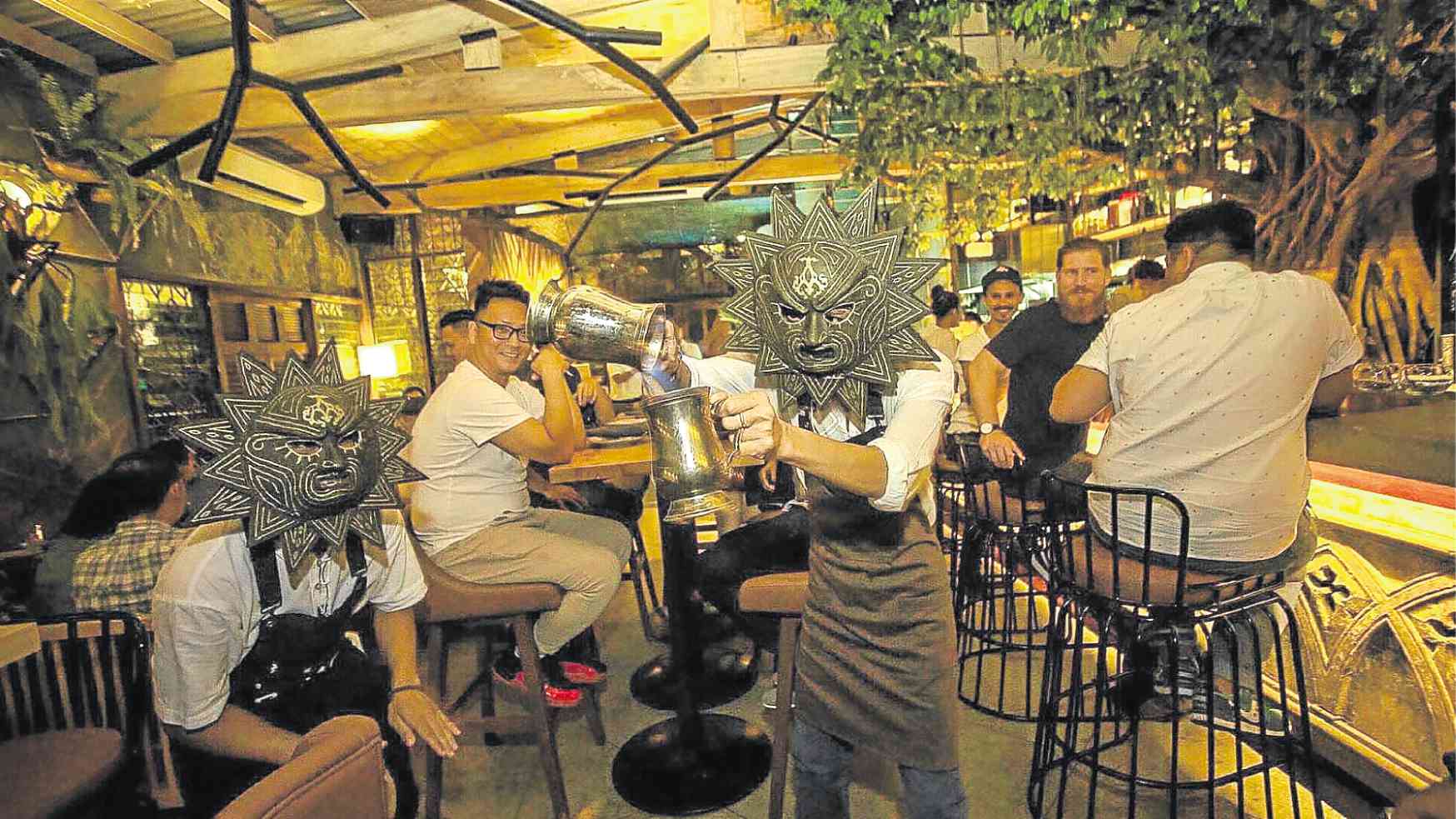Bewitched by Agimat
It sits quietly on the corner of Fermina and Alfonso Streets in Poblacion, Makati, looming like someone’s great-grandparents’ ancestral home.
But one of its huge windows, designed with the Eye of Providence, gives it away. At this point you are intrigued, immediately getting an urge to further explore what lies inside the seemingly mystic house.
Welcome to Agimat Foraging Bar and Kitchen, one of Poblacion’s popular haunts.
Once you step through the entryway, you know you are in for a particularly interesting night. Red candles sit flickering on the steps leading to the second floor, where the bar is.
“Are you sure we’re drinking here? Magpapatawas ba tayo? (Are we seeing a witch doctor?)” I asked my boyfriend and our friends before traversing the stairs. We stumbled upon Agimat one Saturday night many moons ago, in search of a new place to check out.
One cannot help but feel nervous—and at the same time giddy. Where else in hip and trendy Makati can you stumble upon a bar which feels like it is transporting you to a far away, old, mysterious place?
The idea came to interior designer and co-owner Paolo Sayo one night while out with his partners at Alamat, another bar in Poblacion which he likewise designed and co-owns.
Sayo, who also manages Manila Increation Studio, said the word ‘agimat’ came to his attention as a parallel concept to Alamat, but with a different take. Agimat focused more on the cocktails and on foraging raw materials in different parts of the Philippines for food handled by Chef Ninyo Laus.
He continued, “We did a lot of study towards Philippine folklore and occult. It just so happens that there was a storage house down Alfonso Street and, poof, Agimat came to life.”
For 12 weeks, the interior designer and his team transformed the old house-turned-warehouse into one of Poblacion’s most happening joints.
He followed regional folklore and went to different provinces to acquire the materials.
“With the help of Jun Sabayton, I went to places like Quiapo, Bacolor and Sasmoan in Pampanga, Mt. Banahaw in Quezon, and all over Bulacan,” Sayo further shared.
He spent days in Quiapo which is, he realized, basically “the home of amulets and charms.” Some of the materials in the existing space were likewise repurposed.
“The details that I kept were the wooden floor, which I turned into an accent wall that you see to your right as you go up the stairs and the windows to your left as you enter the restaurant/bar,” he explained.
Despite being a warehouse prior to Agimat, the old house still had the character of the “olden Makati architecture.” The interior designer then did a lot of research about Makati’s old houses, one of which is Casa Mercedes, in respecting the form of the original structure.
Inside Agimat, the place is teeming with details representing local folklore and occult. There is even a real, breathing balete tree behind the bar. Sayo recalled that as a kid, he found the tree the most interesting.
He shared: “The story behind the balete tree was actually based on our ancestors’ belief that it bears different fruits and, at the same time, elemental creatures live in it.”
With a place so rich with such interesting elements, what is his favorite part of Agimat?
“The red candles you see by the stairs—through time it serves as an art piece that forms its own character,” Sayo concluded.

